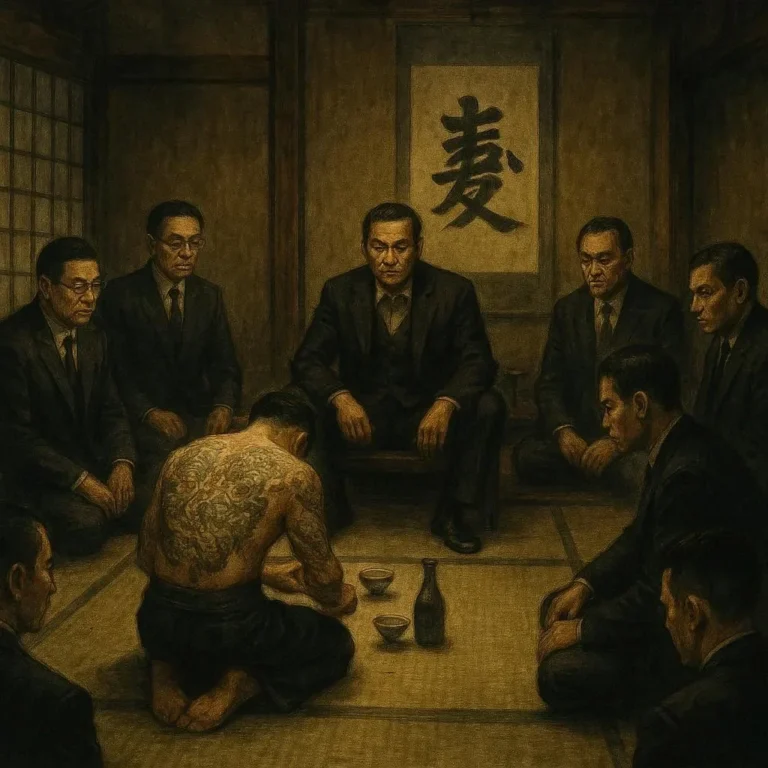504 views The Rise of Anti-Yakuza Laws and Their Impact
Understanding the Rise of Anti-Yakuza Laws in Japan
In recent years, Japan has witnessed a significant shift in its approach to combating organized crime, particularly through the enactment of stringent anti-Yakuza laws. These laws aim to dismantle the pervasive influence of Yakuza syndicates, which have long been a part of Japan’s criminal underbelly. This blog delves into the origins of these anti-Yakuza laws, their key provisions, and the impact they have had on both criminal organizations and Japanese society at large.
The Origin of Anti-Yakuza Laws
The Yakuza, Japan’s notorious organized crime groups, have a history that stretches back centuries. Traditionally, they were seen as somewhat romanticized figures, with a code of honor that set them apart from other criminal organizations. However, over the years, their activities have become increasingly violent and lucative, involving drug trafficking, extortion, and other illegal enterprises.
The Japanese government’s tolerance for Yakuza activities began to wane in the late 20th century, as the groups’ influence over legitimate businesses and their involvement in international crime became more apparent. This shift led to the passage of the Anti-Yakuza Laws (Boryokudan Hakaiho) in 1992, which marked a turning point in the government’s approach to organized crime.
Key Provisions of Anti-Yakuza Laws
The Anti-Yakuza Laws introduced a range of measures designed to curb the power and influence of Yakuza groups. Some of the key provisions include:
- Criminalizing Yakuza membership: The laws make it illegal to be a member of a designated Yakuza organization. This provision has been particularly effective in disrupting the recruitment and retention of new members.
- Asset forfeiture: Authorities are now empowered to seize assets and property acquired through illegal activities. This has struck at the financial heart of Yakuza operations, making it harder for them to fund their enterprises.
- Enhanced penalties for Yakuza-related crimes: Individuals convicted of crimes committed on behalf of a Yakuza group face harsher penalties, including longer prison sentences and heavier fines.
- Restrictions on Yakuza-affiliated businesses: Legitimate businesses found to be associated with Yakuza groups can face penalties, including the revocation of licenses and hefty fines.
These provisions have collectively created a hostile environment for Yakuza groups, forcing them to operate with greater caution and making it more difficult for them to maintain their influence.
The Impact of Anti-Yakuza Laws
The implementation of anti-Yakuza laws has had a profound impact on both the criminal landscape in Japan and the broader society. While the laws have not completely eradicated the Yakuza, they have certainly diminished their power and visibility.
Decline in Yakuza Membership
One of the most notable effects of the anti-Yakuza laws has been a significant decline in Yakuza membership. According to data from the Japanese National Police Agency, the number of Yakuza members has decreased steadily since the laws were enacted. As of 2023, the total membership is estimated to be fewer than 30,000 individuals, down from a peak of over 80,000 in the early 1990s.
This decline can be attributed to several factors, including the criminalization of Yakuza membership, increased police crackdowns, and the stigma now associated with being part of these groups. Many former members have either gone into hiding or sought to reintegrate into legitimate society.
Disruption of Criminal Activities
The anti-Yakuza laws have also disrupted the criminal activities of Yakuza groups, making it more difficult for them to engage in lucrative enterprises such as drug trafficking, extortion, and gambling. Law enforcement agencies have reported a decrease in Yakuza-related crimes, particularly in urban areas where these groups once held significant sway.
Impact on Legitimate Businesses
The laws have also had a positive impact on legitimate businesses, which are no longer subjected to the same level of extortion and intimidation from Yakuza groups. This has created a more favorable business environment, particularly for small and medium-sized enterprises that were often targeted by Yakuza members.
Challenges and Criticisms
Despite their successes, the anti-Yakuza laws have not been without their challenges and criticisms. Some argue that the laws have driven Yakuza activities further underground, making them more difficult to monitor and prosecute. There are also concerns that the laws have not fully addressed the root causes of organized crime in Japan, such as poverty and social exclusion.
The Future of Anti-Yakuza Laws
As Japan continues to grapple with the complexities of organized crime, the future of anti-Yakuza laws remains a topic of debate. While the laws have achieved significant successes in reducing Yakuza influence, there is recognition that more needs to be done to address the underlying issues that give rise to organized crime.
One approach that has been proposed is the further strengthening of anti-Yakuza laws, particularly in relation to asset forfeiture and international cooperation. There is also a growing recognition of the need to provide support to individuals seeking to leave the Yakuza, through initiatives such as job training and counseling programs.
Conclusion
The rise of anti-Yakuza laws in Japan represents a significant step forward in the fight against organized crime. While these laws have not completely eradicated the Yakuza, they have undoubtedly diminished their power and influence. As Japan looks to the future, it will be important to continue refining these laws and addressing the broader social and economic factors that contribute to organized crime.
If you’d like to learn more about organized crime and its impact on society, we recommend checking out the following resources:
- Yakuza – Wikipedia
- Japanese Law Translation – Anti-Yakuza Laws
- Japanese National Police Agency – English
We hope this article has provided you with valuable insights into the rise of anti-Yakuza laws and their impact. If you have any further questions or would like to share your thoughts, please feel free to leave a comment below.
FAQ
What are anti-Yakuza laws?
Anti-Yakuza laws are a set of legal provisions enacted in Japan to combat organized crime, particularly activities carried out by Yakuza groups. These laws aim to disrupt the operations of Yakuza organizations by criminalizing membership, seizing assets, and imposing harsher penalties for Yakuza-related crimes.
What is the main goal of anti-Yakuza laws?
The main goal of anti-Yakuza laws is to reduce the power and influence of Yakuza groups in Japan. By targeting their membership, financial resources, and criminal activities, these laws aim to dismantle the Yakuza’s grip on both the criminal underworld and legitimate businesses.
Have anti-Yakuza laws been successful?
While anti-Yakuza laws have not completely eradicated Yakuza groups, they have been successful in reducing their membership and disrupting their activities. The number of Yakuza members has significantly decreased since the laws were enacted, and there has been a noticeable decline in Yakuza-related crimes.
What challenges remain in the fight against organized crime in Japan?
Despite the successes of anti-Yakuza laws, challenges remain. These include driving Yakuza activities further underground, addressing the root causes of organized crime, and ensuring international cooperation in combating transnational crime. Additionally, there is a need to provide support to individuals seeking to leave the Yakuza and reintegrate into society.
What is the future of anti-Yakuza laws?
The future of anti-Yakuza laws likely involves further strengthening of existing provisions, particularly in relation to asset forfeiture and international cooperation. There is also a growing recognition of the need to address the broader social and economic factors that contribute to organized crime, such as poverty and social exclusion. By taking a comprehensive approach, Japan can continue to make progress in its fight against organized crime.
This concludes our exploration of the rise of anti-Yakuza laws and their impact. We hope this information has been informative and helpful. If you have any further questions or would like to explore this topic further, please don’t hesitate to reach out.
Thank you for reading!







